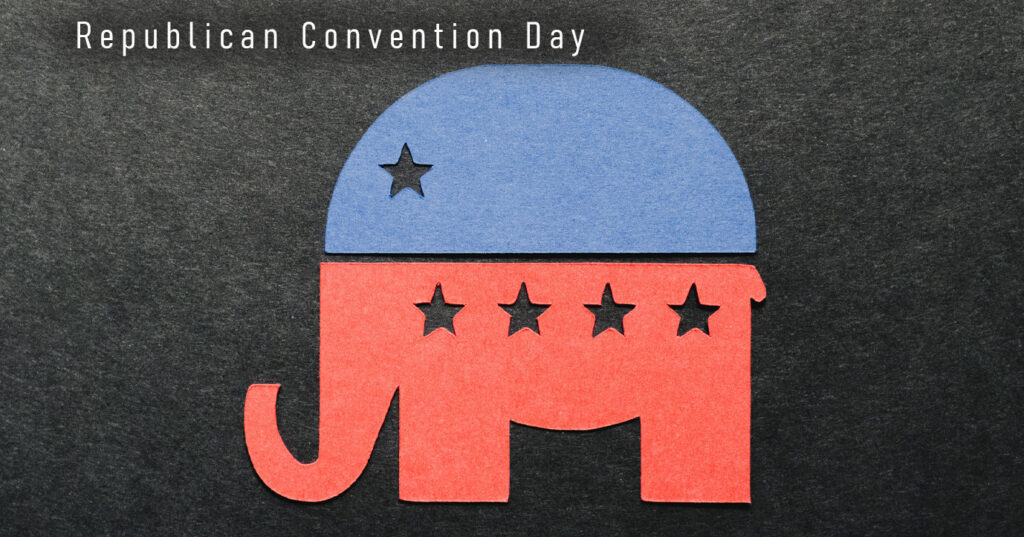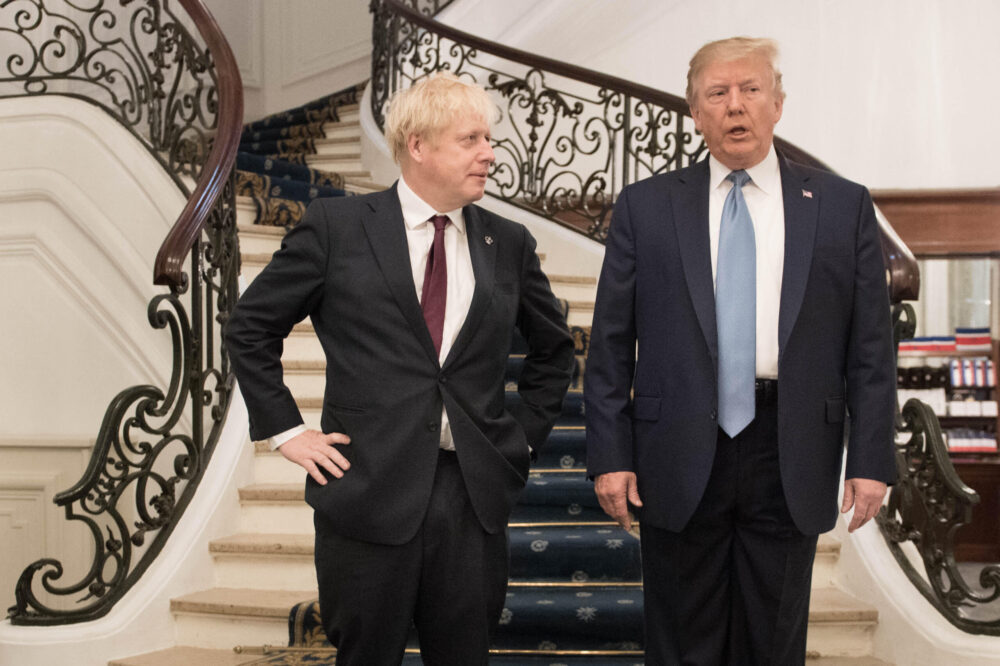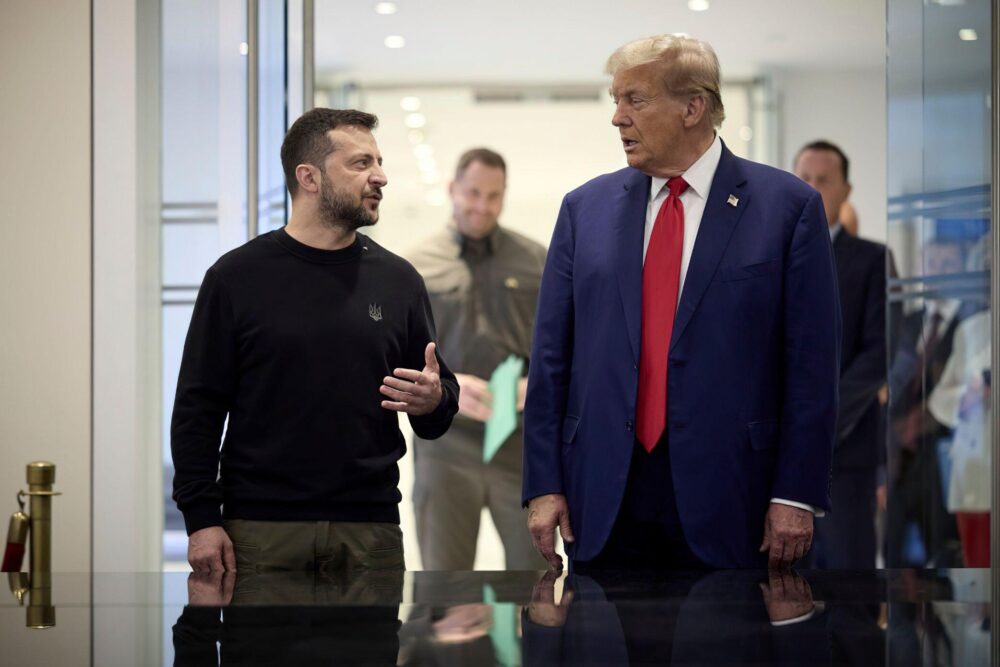
One of the things about Donald Trump that bemuses commentators and exasperates Republican campaign professionals is that, as one analyst put it to us, “he is running something that looks nothing like a campaign.” For one thing, he has raised nowhere near as much money as Hillary Clinton, and will probably be outspent by hundreds of millions of dollars by November. “If he’s worth as many billions as he says he is, he should spend some of it,” one frustrated operative grumbled.
For another thing, he has no ground operation to speak of – no troops on the ground knocking on doors in the states he needs to win: “Ground organisation matters. It can’t buy you ten points but it can get you two or three. It only matters if it’s close, but the Democrats have invested in it and Trump hasn’t.”
For a third thing, Trump is running no TV ads. Opinion in Cleveland is divided as to whether this reflects a bold rewriting of the campaign rulebook or suggests he has no idea what he is doing. Either way, Clinton is running anti-Trump spots in swing states – including here in Ohio – and there is some polling evidence that they are having an effect.
As if that is not enough, some professionals worry that Trump himself is showing no discipline. In his first appearance after the FBI director described Clinton as “extremely careless” in her use of private email while Secretary of State, instead of exploiting the issue Trump launched into an extended rant at the media over a tweet he had sent featuring a Star of David and a pile of cash. The previous month, rather than highlight the very poor jobs figures that had been released, he decided to lash out at an Hispanic judge in Indiana, calling her “a Mexican”. He is also known to be focusing on relatively small details, such as insisting on the redesign of the stage at the Convention (“I didn’t like the shape. Too straight. Too nothing. Didn’t have the drama,” he explained).
Though this unpredictability is part of his appeal, some fear it also means he may be missing opportunities. As one veteran campaigner suggested, Trump is ahead on the economy, and could get real traction on the issue if he put his mind to it. The distractions were threatening the GOP’s chances of making changes: “Republicans have plenty of good reforms ready to go. All we need is a president”.
*
So far, Trump has relied largely on the media to get his message out. As one experienced Donald-watcher explained, he has an ambiguous relationship with the press. Reflecting on his tendency to single out reporters for sometimes vitriolic criticism, she said: “It’s not that he hates the media – he doesn’t like investigative reporting about himself. Hillary hates the press. She’d be fine if the press never covered her again, but Donald Trump wouldn’t.” Indeed, despite the odd tirade, he seemed to enjoy dealing with journalists: “Donald Trump’s media team is two people, and one of them is him. Before he entered politics he would call the gossip pages of the New York papers and describe himself as a source close to Trump.”
Reporters had similarly mixed views about him. On the plus side, he is one heck of a story. “I love covering Trump because he’s such an unusual phenomenon,” one journalist told us. “I had to spend 2012 coming up with interesting angles on Mitt Romney.” But some were less forgiving of his occasionally hostile attitude: “I have never seen a presidential candidate say he will open up the libel laws, whatever that means, so he can go after individual journalists. If he does win you can probably write to me at a re-education camp in the desert somewhere.”
*
Foreign policy rarely features in a presidential campaign, but this is one of the areas that causes the most apprehension for Trump critics. At a briefing for the International Republican Institute yesterday afternoon, Governor John Kasich told us he was concerned about growing nationalism, the increasing tide of isolationism, the growing pattern of anti-immigration and anti-trade rhetoric. “That stew, I’m very worried about it.” He didn’t say who he was thinking of, but he didn’t need to.
Isolationism was encouraging for those who did not wish the West well. (“Who was the happiest man in the world after Brexit?”, Kasich asked. “Vladimir Puti…”. I raised my hand. “Oh you were?”)
Others were more direct about their fears. Jennifer Rubin, who writes on the issue for the Washington Post, told us Donald Trump was the only candidate the Republicans could have come up with who makes foreign policy an advantage for Hillary Clinton. Though the first evening of the Convention had been devoted to national security “we didn’t hear a lot about what Donald Trump would do in the world, because he doesn’t know what he would do.” What we do know, she continued, was that he speaks admiringly of authoritarian regimes, and does not value America’s international alliances. “His wacky ideas are bad enough – let’s build a wall and get someone else to pay for it – but worse is that he admires strength, not decency and democratic values.”
Worst of all, his erratic approach could have disastrous consequences. He had seemed prepared to discard the relationship with Britain after David Cameron criticised his proposed ban on Muslims entering the US, so “what if the same happened in the Baltic, and he said ‘we don’t need you’, and the next day the Russians came in? I won’t sugarcoat it, it’s frightful.”
Was there any scope, I asked, for him to surround himself with two or three serious foreign policy advisers, such as a proposed Secretary of State? No, she said: “He has no-one there to impart a foreign policy message to him, and he wouldn’t listen to them if there were.” And if he were to change his foreign policy message, no-one would believe him. “It’s lipstick on a pig time.”
*
Speaking of the transatlantic partnership, I ran into Kevin Brady, Chairman of the House Ways and Means Committee, whose responsibilities include trade agreements. He told me the UK would certainly not be at the back of the queue when it came to a trade deal with the US and that Liam Fox and Boris Johnson would find a warm welcome in Washington.


